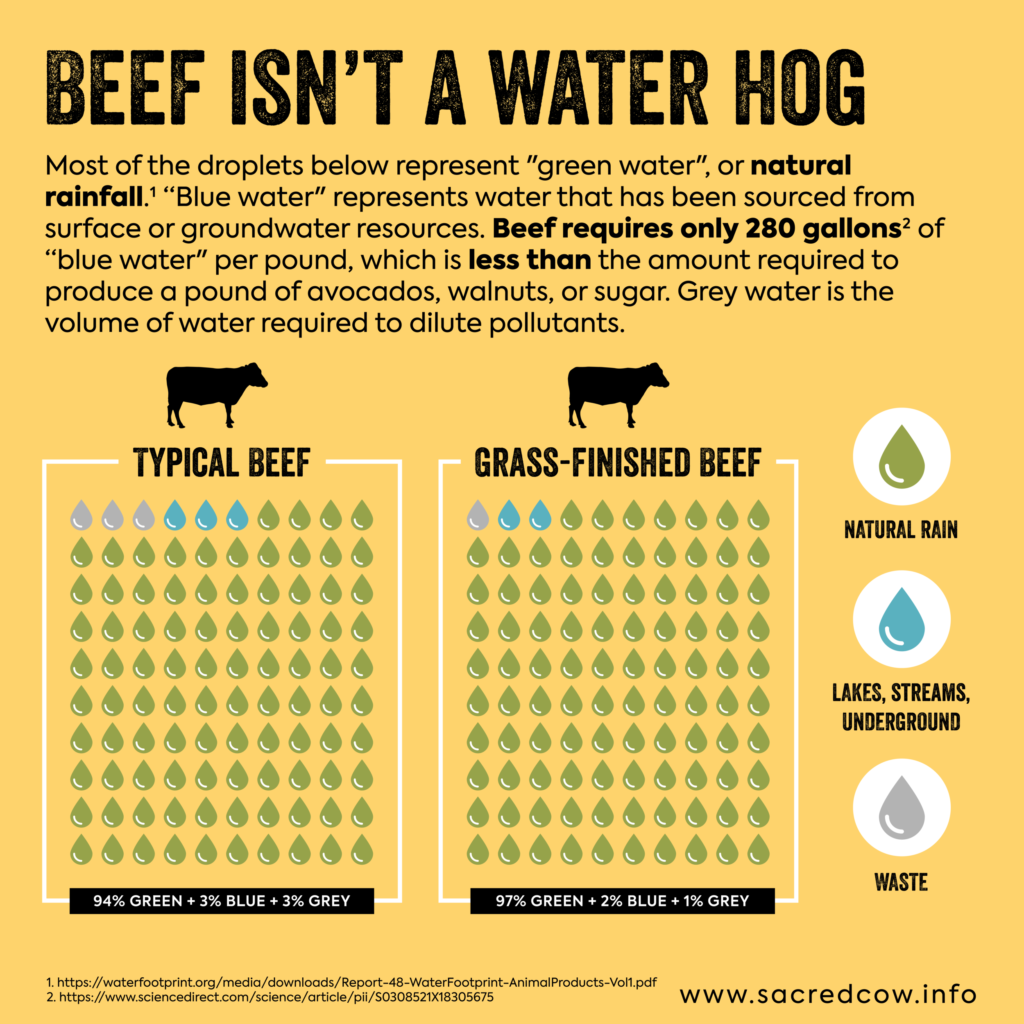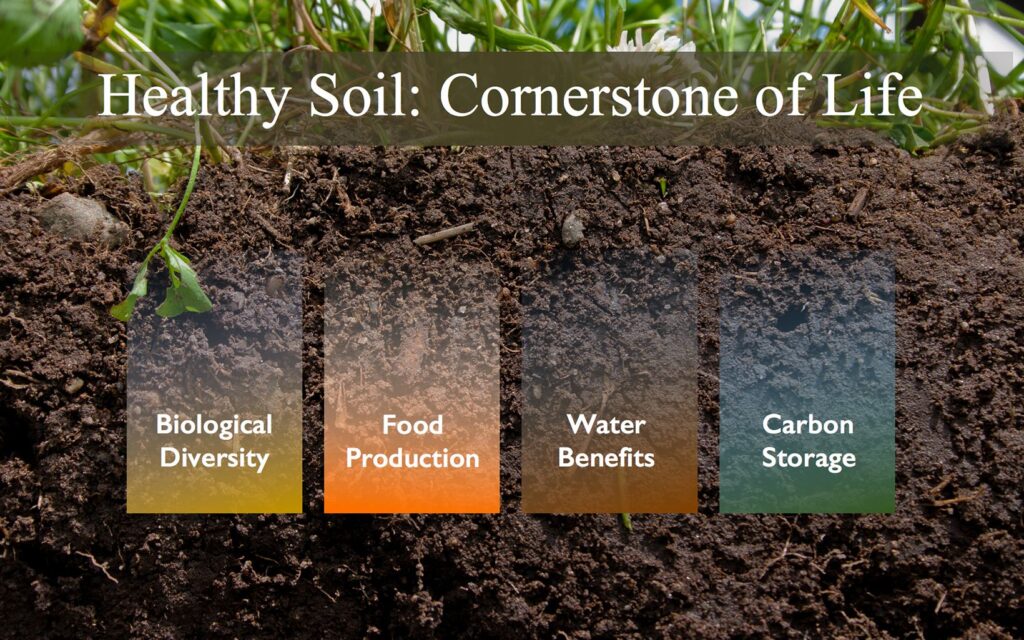Grassfed beef is good for your health, but is it good for the environment? Let’s examine how cows that mainly eat grass affect soil and water. Then, in our next article, we’ll consider the relationship between grassfed cows and methane, a greenhouse gas that’s associated with climate change.

Grassfed Beef and Water
Clean, freshwater is a precious resource. Some estimates claim that more than half the world’s population faces water scarcity for at least one month per year. Cows need water to survive, but they don’t consume it in excessive amounts. In fact, cows don’t destroy water at all. Rather, they drink it and then release it back into the environment through urination and defecation.
The type of water that grassfed cows drink is also worth noting. Approximately 95% of it is green water, a term that’s used to describe rainfall and naturally occurring precipitation. In other words, this water is not extracted from lakes, rivers, and reservoirs or pumped from aquifers. Compare that to crop irrigation, which is responsible for 70% of the world’s freshwater withdrawals.
While it’s true that runoff from manure can contaminate sources of freshwater, proper manure management can address this concern. Grazing management, especially rotational grazing, also has a role to play because it protects the grasses and other vegetation that helps prevent excessive runoff. In the proper amounts, cow manure is good for these grasses and the soil beneath it.

Cow manure and urine adds nutrients to the pastures where grassfed cows are raised. This “waste” enriches the soil with nitrogen and supports the growth of soil microbes. In turn, these tiny organisms promote the growth of grasses and other plants that help prevent topsoil erosion. The hooves of cows also aerate the soil, break up roots, and help it retain more rainfall.
Importantly, pastures are also carbon sinks: areas that absorb more carbon than they produce. Carbon is a chemical element that makes life on earth possible, but too much carbon in the form of carbon dioxide (CO2) is blamed for climate change. Carbon sequestration captures CO2 from the atmosphere in soil, and soil carbon sequestration can also improve agricultural productivity.
But what about methane, another greenhouse gas that’s blamed for climate change and a natural part of a cow’s digestive process? That’s the subject of our next article.